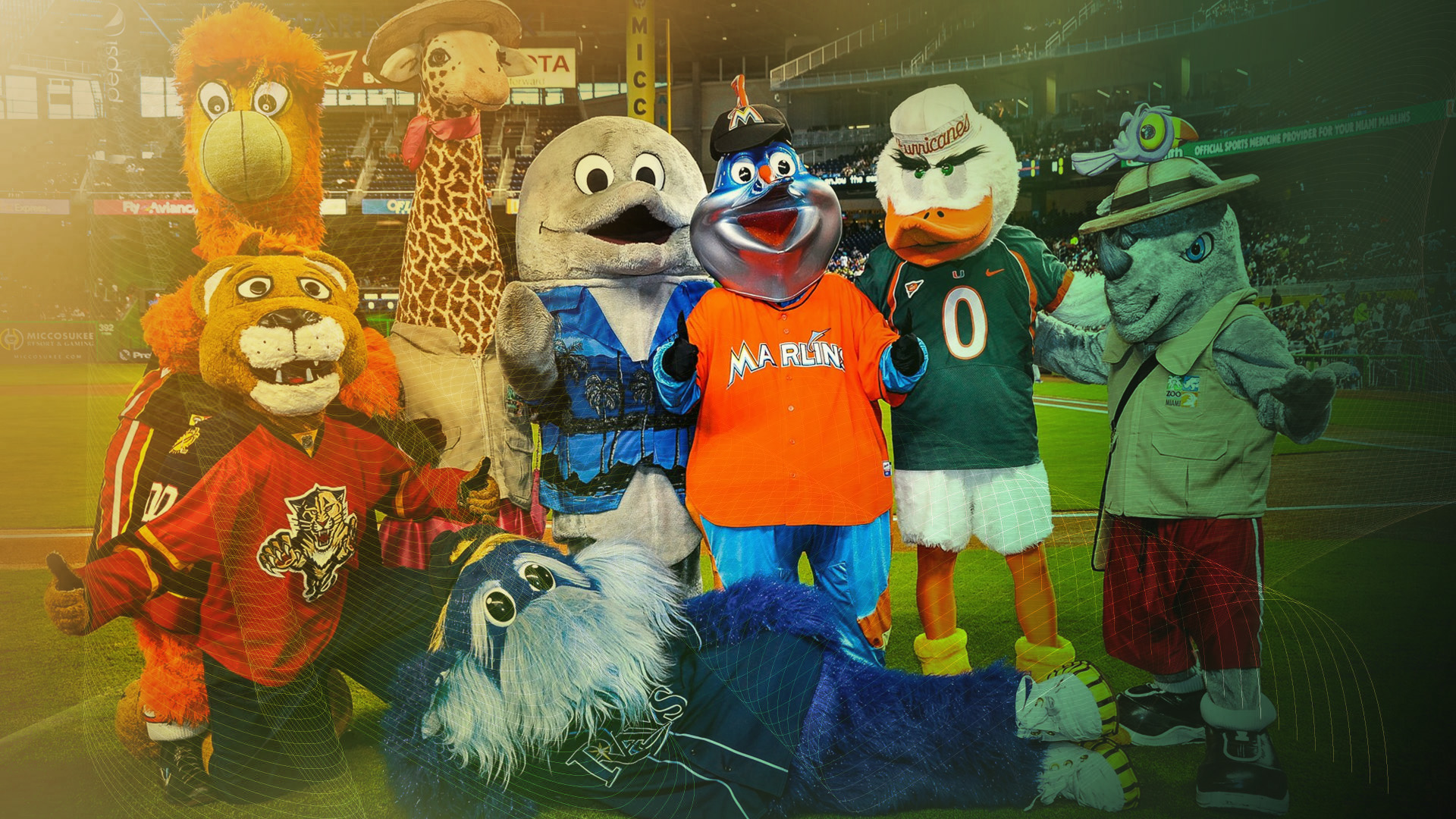 HHP - Update me in site_config > General Configuration
HHP - Update me in site_config > General Configuration
A study conducted using Miami Marlins branding showed how a fuzzy mascot can attract a new fanbase

October 6, 2022
Albert the Alligator dons a turtleneck and cap. Alberta sports a bow and a cheerleader uniform. Their accessories demonstrate anthropomorphism, the humanization of a nonhuman thing using recognizable characteristics. It’s a process that’s been used for years to bring life to a sports team’s fanfare. But do the costumed characters work on future fans?
For the last decade, Yong Jae Ko, Ph.D., professor in sport management, has evaluated sports teams, athletes and coaches as a brand for marketing. He has contributed to the first literature to consider athletes as a brand which offers input on how to manage their image.
In his most recent paper though, Do humanized team mascots attract new fans? Application and extension of the anthropomorphism theory, Ko and company extended the importance of sport branding to the wacky creatures that often reside on court sidelines.
Ko worked with Yonghwan Chang, Ph.D., assistant professor in sport management as well as Akira Asada, Ph.D., assistant professor in sport management at Texas Tech University, Wonseok (Eric) Jang, Ph.D., assistant professor in sport science at Sungkyunkwan University, and Daehwan Kim, Ph.D., assistant professor in the Department of Marine Sports at Pukyong National University — all of whom are former students of Ko.
“The team mascot represents the identity and image of the athletic teams and the university itself,” Ko said.
Regardless of these ties, the researchers felt that teams have little guidance on how to use the appeal of their mascots when promoting their team brand.
Human-like brands are present in everything from dish sponges to cereal characters as a way to sell products. Humanization helps to close the psychological distance between brands and consumers. A positive interaction can then be made between the two — a practice which can be brought into the sports world too.
Ko recalled a time the Olympics stopped in his home country of South Korea. During the 1988 summer games the Korea Olympic Committee created mascots to reflect the culture and people of the host nation. Hodori and Hosuni were a pair of Amur tigers plastered on souvenir cups, pins and shirts.
“It sold out,” Ko said. “Immediately sold out.”
Ko also noted that this psychological closeness can be maximized for people experiencing loneliness. His team hypothesized that the effect of anthropomorphism on psychological closeness is stronger for those who feel lonely. The increased closeness may lead them to watch games and buy merchandise.
The study included Miami Marlins mascot Billy alongside other team logos on various promotional materials sent to participants to gauge their interest in the team.
The results from 239 baseball spectators in the U.S. indicated that a sport team’s use of mascots increased its perceived anthropomorphism greater than just using logos. It also supported its hypotheses that this anthropomorphism is positively related to fans’ psychological closeness which is furthermore positively related to media consumption intentions. Lastly, it supported their hypotheses that a consumers’ loneliness creates greater closeness to a team and its mascot.
Whether from a merchandising or fandom perspective, Ko believes teams should continue to invest in building up their mascot branding.
He said research outcomes associated with anthropomorphism and team mascots can offer meaningful solutions for public health improvement and improve revenue for the team.
“Many psychologists express concern that the coronavirus pandemic has triggered a ‘loneliness’ epidemic worldwide,” said Ko. “Mascots can help bring people back to the game they love, especially as collegiate and professional sports face declining ticket sales and deal with critical social issues.”
Ko plans to continue his research on the psychological effects of humanized mascots by focusing on current and potential fans’ emotion and socialization process.
--
Comment / Like / Share - Connect with #UFHHP
FACEBOOK │ INSTAGRAM │ LINKEDIN │ TWITTER
--